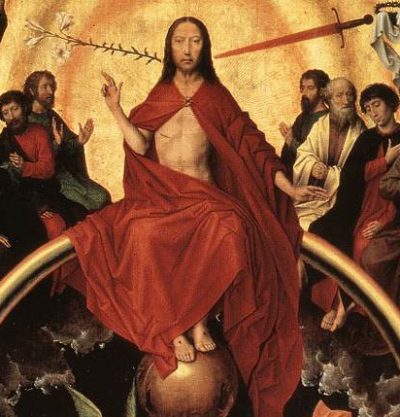 Readings:
Readings:
Ezekiel 34:11–12, 15–17
Psalm 23:1–3, 5–6
1 Corinthians 15:20–26, 28
Matthew 25:31–46
The Church year ends today with a vision of the end of time. The scene in the Gospel is stark and resounds with Old Testament echoes.
The Son of Man is enthroned over all nations and peoples of every language (see Daniel 7:13–14). The nations have been gathered to see His glory and receive His judgment (see Isaiah 66:18; Zephaniah
3:8). The King is the divine shepherd Ezekiel foresees in today’s First Reading, judging as a shepherd separates sheep from goats.
Each of us will be judged upon our performance of the simple works of mercy we hear in the Gospel today.
These works, as Jesus explains today, are reflections or measures of our love for Him, our faithfulness to His commandment that we love God with all our might and our neighbor as ourselves (see Matthew 22:36–40).
Our faith is dead, lifeless, unless it is expressed in works of love (see James 2:20; Galatians 5:6). And we cannot say we truly love God, whom we cannot see, if we don’t love our neighbor, whom we can (see 1 John 4:20).
The Lord is our shepherd, as we sing in today’s Psalm. And we are to follow His lead, to imitate His example (see 1 Peter 2:21; Ephesians 5:1).
He healed our sickness (see Luke 6:19), freed us from the prison of sin and death (see Romans 8:2, 21), welcomed us who were once strangers to His covenant (see Ephesians 2:12, 19). He clothed us in
Baptism (see Revelation 3:5; 2 Corinthians 5:3–4), and feeds us with the food and drink of His own Body and Blood.
At “the end,” He will come again to hand over His kingdom to His Father, as Paul says in today’s Epistle.
Let us strive to be following Him in right paths, that this kingdom might be our inheritance, that we might enter into the eternal rest promised for the people of God (see Hebrews 4:1, 9–11).